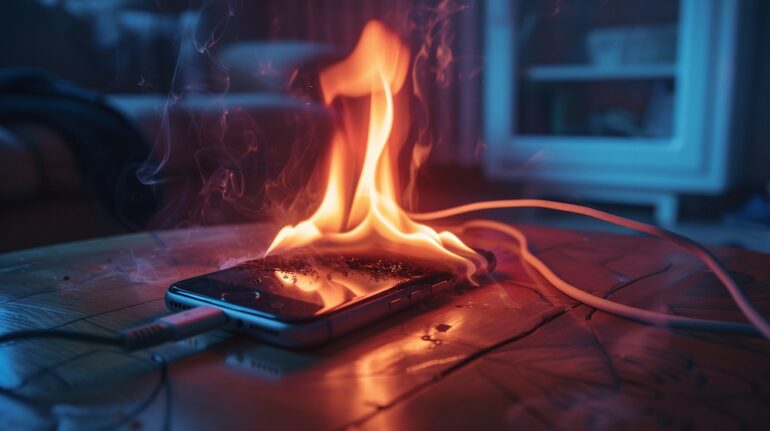Lithium batteries are used in many devices: cell phones, laptops, cameras, key remotes, etc. However, they must be handled appropriately to prevent possible fire or explosion. Here’s how to practice safe handling with these batteries.
Benefits and cautions of lithium batteries
Your package of dry alkaline AAA, AA, C, or D batteries is not lithium and is completely safe. Lithium batteries are rechargeable and used in electronic devices. Their technology is more sophisticated than standard batteries, which deliver power more efficiently and can be recharged.
However, lithium batteries can fail, potentially catch fire, or even explode under certain conditions, including these scenarios.
- Exposure to a hot environment—whether left in a hot car for hours on a summer day or left too close to a fireplace or heater—can cause the battery to malfunction. For example, some cell phones will temporarily turn off as a safety precaution if they are overheated.
- Being left in very cold conditions—placed outdoors or in a freezing car on a frigid winter day—can lead to battery failure.
- Damage caused by dropping, crushing, cracking, or twisting a device or lithium battery can result in failure and even the potential for fire or explosion.
- If a lithium battery gets wet, it can lead to failure.
Damage to the battery, such as crushing or cracking, warps its internal cells. One cell can overheat and spread to the other cells in a process known as thermal runaway. This results in overheating the entire battery, which can cause it to burst into flames and even explode.
Proper care and disposal
Avoiding these alarming situations is easy.
- Do not leave electronic devices with lithium batteries in hot or cold environments for long.
- Only charge devices with lithium batteries on a manufacturer-approved charger.
- When replacing a lithium battery in a device, use only a battery approved by the manufacturer.
- When charging, disconnect the item from the charger once the device or battery is fully charged. Avoid leaving the charger on long after the full charge is attained.
- The batteries eventually wear out and fail. Do not throw them in the trash. They can get crushed under the weight of surrounding refuse and catch fire. There are documented incidents of garbage trucks catching fire this way.
- If a battery has suffered a hard fall or potential damage, watch closely for bulging, cracking, hissing, leaking, or smoking. Call a battery-recycling center for disposal instructions if any of these signs are present. If possible, place the battery in a metal container with sand.
- Dispose of these batteries at a battery-recycling center.
- Lithium batteries in electronic devices are allowed in checked airline bags, but loose ones are not.
Related – What You Need to Know About Charging An Electric Vehicle


